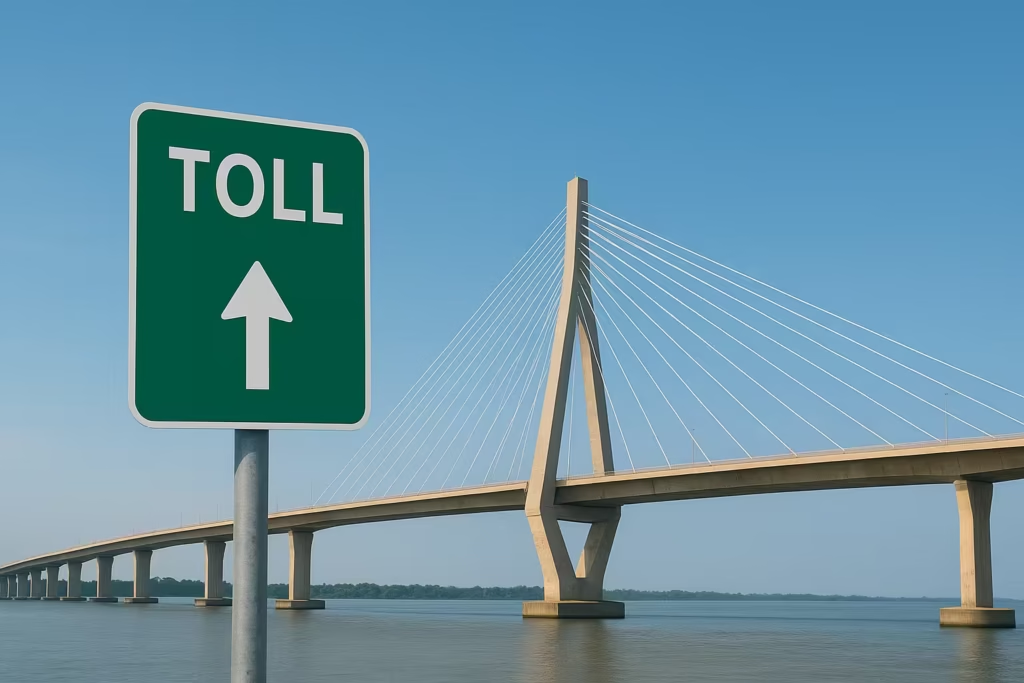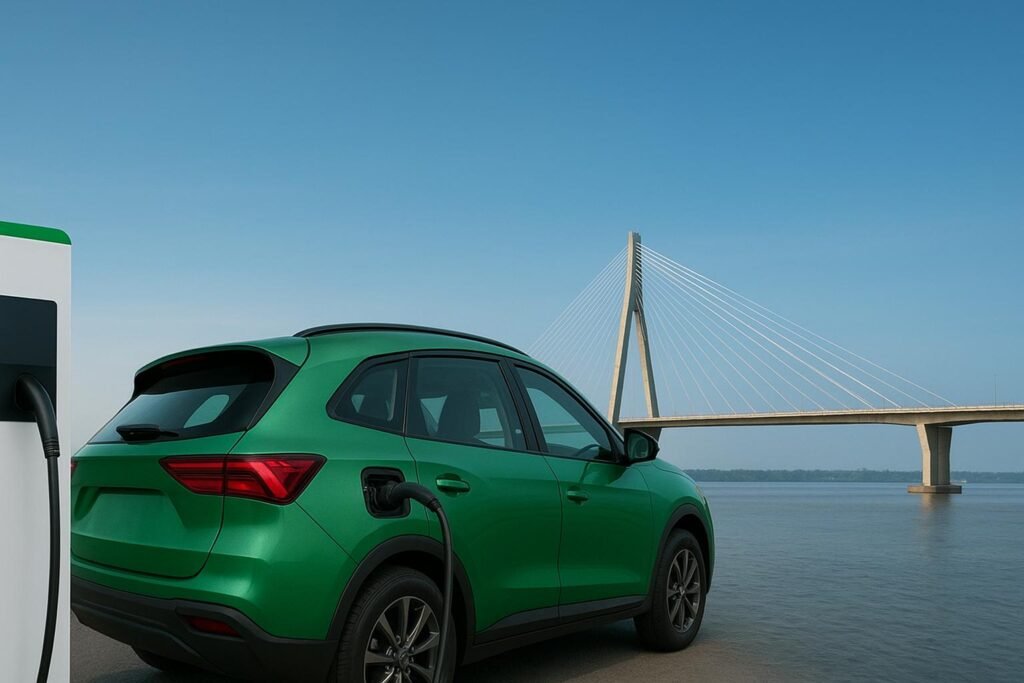The landmark no tolls for EVs initiative has officially begun, marking a significant milestone in Maharashtra’s EV journey. Effective August 22, 2025, electric vehicles—private and commercial passenger EVs—will no longer pay tolls on the iconic Mumbai Trans Harbour Link, also known as Atal Setu. This bold move is among the central provisions of the Maharashtra EV Policy 2025, setting a clear precedent for green mobility incentives in India.
Also Read: FASTag Annual Pass – How to Activate, Benefits, & Eligibility Explained for 2025-26
No Tolls for EVs on Atal Setu: What Has Changed?
Maharashtra’s new policy grants complete toll exemption to all electric passenger vehicles using the Atal Setu. The decision reflects the state government’s commitment to EV adoption, aiming to improve affordability, encourage migration away from fossil-fueled vehicles, and reduce air pollution in one of India’s busiest regions.

Key Highlights
| Parameter | Details |
|---|---|
| Toll Exemption Start Date | August 22, 2025 |
| Covered Route | Atal Setu (Mumbai Trans Harbour Link) |
| Eligible Vehicles | All electric passenger vehicles (private & commercial buses) |
| Excluded Vehicles | Electric goods carriers |
| Part of EV Policy | Maharashtra State EV Policy 2025 |
| Policy Duration | Effective till March 31, 2030 |
| Plans for Extension | Mumbai-Pune Expressway, Samruddhi Expressway (pending) |
Also Read: Exclusive E20 Fuel Impact on Cars – Efficiency, Engine Risks & Real-World Performance
No Tolls for EVs: Who Benefits?
The no tolls for EVs rule applies to:
- Private electric cars
- Electric taxis
- Electric passenger vans
- Electric buses (commercial and private)
Electric goods carriers are not included in the current toll exemption.
Also Read: GST on Small Cars May Be Cut to 18% – Impact, Benefits & Price Reductions
Maharashtra’s EV Policy 2025: Broader Push
The toll waiver is just one of several major changes introduced under Maharashtra’s new EV Policy 2025, valid through March 31, 2030. Additional policy measures include:
- Subsidies on electric two-wheelers and passenger cars
- Waiver of registration charges for EVs
- Establishment of extensive EV charging station network
- Expanded incentives for commercial EVs and e-buses
The impending expansion of no tolls for EVs to other key highways—the Mumbai-Pune Expressway and Samruddhi Expressway—will further sweeten the deal for both urban and inter-city electric vehicle users.
Also Read: Top 5 Safest Electric Cars in India (Bharat NCAP) – Ultimate Scores & Crash Test Insights
Why No Tolls for EVs on Atal Setu Matters
1. Direct Savings for Owners
The Mumbai Trans Harbour Link is a critical—and tolled—bridge for thousands daily. Toll costs for regular cars can add up substantially for frequent commuters. With the no tolls for EVs policy, buyers calculate substantial annual savings, making EV ownership more compelling and practical.
2. Incentive for Green Mobility
Waiving tolls lowers the operational cost barrier for EVs, enticing both families and businesses to shift from petrol and diesel vehicles to electric alternatives. It reinforces Maharashtra’s position as a leader in driving India’s electric mobility revolution.
3. Influence on Future Policy
With the Atal Setu exemption now active, authorities are preparing similar benefits for other major Maharashtra corridors (including Mumbai-Pune Expressway and Samruddhi Expressway), demonstrating how dynamic state policy can accelerate clean transport adoption.
EV Toll Exemption Coverage (Current and Proposed)
| Route | Toll Exemption Status | Remarks |
|---|---|---|
| Atal Setu (MTHL) | Yes (from Aug 22, 2025) | All private/commercial passenger EVs |
| Mumbai-Pune Expressway | Expected soon | GR issued, rollout pending |
| Samruddhi Expressway | Expected soon | GR issued, rollout pending |
| Other State/National Highways | Under review | More announcements likely in 2025-26 |
Implementation Notes and Real-world Impact
Although a government resolution authorizing no tolls for EVs was issued back in May 2025, reports indicate that toll booths continued collecting charges from all vehicles until now. With August’s rollout and renewed government directives, enforcement is now expected to be stronger and more transparent.
Conclusion
For Mumbai and Maharashtra’s EV owners, the no tolls for EVs reform is a game changer. Besides direct financial relief, it forms part of a strategic roadmap making EVs attractive, practical, and future-proof. As policy momentum grows, look for expanded toll waivers, richer incentives, and ever-increasing adoption of electric vehicles in India’s biggest auto markets.

